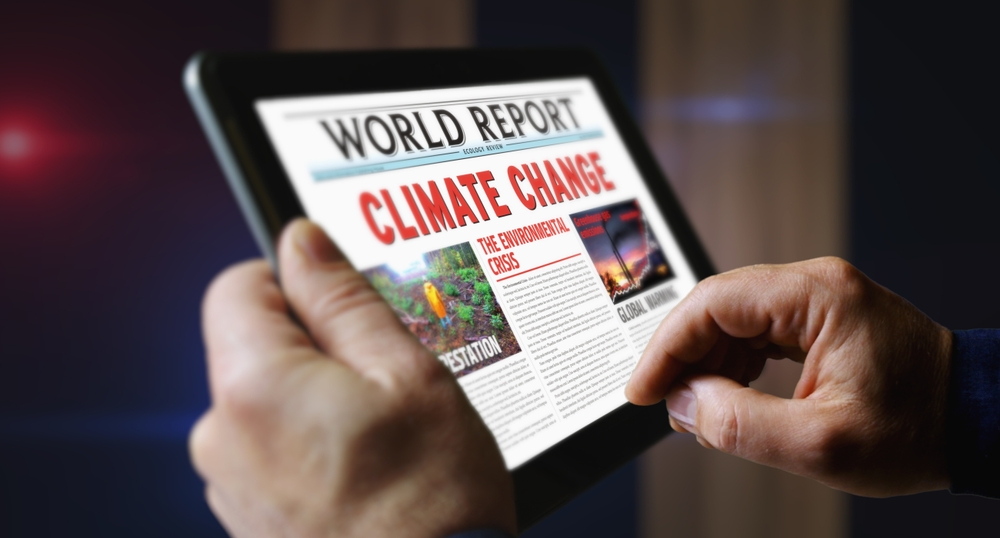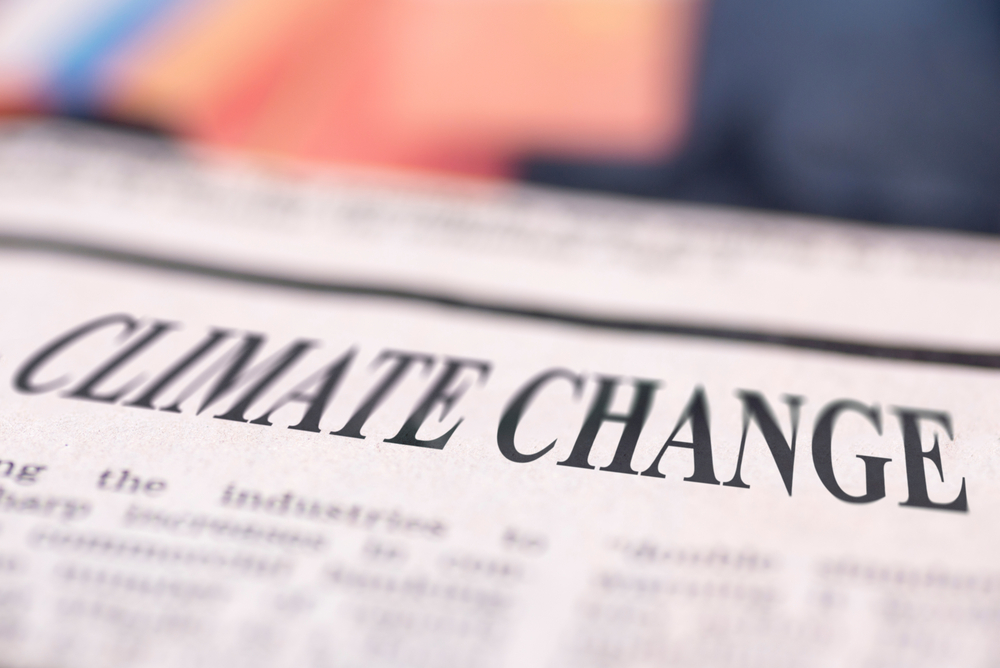Awareness
Why the Media Keeps Getting It Wrong About Climate Change

Climate change is one of the most pressing issues of our time, yet the mainstream media continues to stumble in its coverage, leaving the public inadequately informed. At a time when every day brings news of intensifying natural disasters, rising temperatures, and shifting ecosystems, the role of media in shaping our understanding—and urgency—around climate action is vital. Yet, the reality is that many media outlets still aren’t giving this issue the spotlight it deserves.
While some publications have increased their climate coverage, they often fail to convey the scope of the crisis or the solutions that could help mitigate it. From downplaying the severity to avoiding uncomfortable truths about root causes, media coverage has often missed the mark.
Downplaying the Crisis—Language and Framing Tactics

The way the media talks about climate change can have a huge impact on how we feel about it—and whether we feel like it’s something we need to act on. Words matter. For example, calling it a “climate crisis” gives off a sense of emergency. But saying “climate change”? It sounds almost gentle, like it’s just a shift in weather, nothing we need to worry about. This kind of language can make it easy for people to think it’s not a real, immediate threat.
Then there’s the way stories are framed. We often see headlines like “unexpected weather” or “unusual events” without any link to long-term climate trends. Headlines like these don’t tell us that these events are part of a bigger, ongoing problem. Or take the term “natural disaster”—it sounds random, right? But many of these disasters, like wildfires or floods, are now happening more frequently because of human-driven climate factors. If the media doesn’t make that connection clear, it’s easy for people to think these are isolated incidents, rather than seeing them as part of the bigger picture of climate change.
And this kind of language doesn’t just shape how we think; it affects how we act. When the media uses softer, vague words to describe what’s happening, it makes the crisis feel distant, even unimportant. If the news made it clear that these are urgent problems tied directly to climate change, people might feel a lot more inclined to push for action. The media has a huge influence here—they can help people understand that this is a serious, immediate crisis. All it takes is clearer, more straightforward language that doesn’t downplay the stakes.
False Balance and the Myth of “Both Sides” in Climate Reporting
One big way that climate reporting often goes wrong is by trying to give “both sides” of the issue equal airtime, even when there really aren’t two valid sides. You’ve probably seen this before: a climate scientist, someone who’s dedicated years to studying the crisis, is paired with a climate skeptic, as if their opinions are equally credible. But here’s the thing—more than 99% of scientists agree that climate change is real and mainly caused by human activities. There’s no real debate among experts.
So why does the media keep presenting it like there is? Giving skeptics the same platform makes it look like the science isn’t settled, like there’s still doubt about what’s causing climate change. But the science is as clear as it can be. This “both sides” approach just confuses people, making them think that climate change is still an open question, which can lead to inaction.
And this confusion has real consequences. Studies show that when people see climate change framed as a “debate,” they’re less likely to trust climate science or feel that urgent action is needed. If the media treated climate science the same way they treat topics like gravity or smoking, we’d probably see a lot more support for climate solutions. Climate reporting doesn’t need to give equal weight to skeptics—it needs to show the reality of what scientists know so people can see the full picture.
Missing Narratives—Underrepresented Voices and Stories

Another big gap in climate reporting is whose stories we actually hear. When we talk about climate change, the voices that often get the spotlight are from big cities or wealthier countries. Meanwhile, the people who are already dealing with the worst effects—communities in the Global South, Indigenous groups, and others on the frontlines—don’t get nearly as much attention. These are the people facing things like rising sea levels, intense droughts, and food shortages right now, but their stories don’t always make it into mainstream media.
This lack of coverage matters. When we don’t hear from people who are directly affected, it’s easy to think of climate change as a future problem or as something happening somewhere far away. But for many communities, climate change is already reshaping their daily lives. Hearing these stories would help everyone understand the crisis as something real and immediate, not just as an abstract idea.
There’s also a big piece missing when it comes to climate activists, especially young activists and those from marginalized communities. These are the people leading movements and pushing for real change, but they’re often sidelined or reduced to quick soundbites. By focusing more on these voices, media could give a fuller picture of both the problem and the solutions being fought for right now.
The Role of Individual Action Narratives and Fossil Fuel Advertising
One thing you’ll notice in a lot of climate coverage is how much it talks about what we, as individuals, should be doing—like recycling, using less plastic, or driving less. Now, those things do help, but when the focus is only on personal actions, it misses a huge part of the picture. Climate change isn’t just about individual choices; it’s mainly driven by a handful of big industries and companies with massive carbon footprints.
This is where fossil fuel companies get pretty crafty. They put out ads that make them look like they’re helping to fight climate change, with messages about renewable energy or planting trees. But the truth is, those “green” projects are often a tiny part of what they actually do. Most of their money is still poured into oil, gas, and coal. These ads make them look like climate heroes, even though they’re some of the biggest contributors to the problem.
So when the media focuses too much on what individuals can do, it can almost feel like a distraction. It makes us think that if we just bring our own bags to the store, we’re doing our part, while the real drivers of climate change keep on doing business as usual. If we’re going to get serious about climate solutions, we need media coverage that puts more pressure on these big polluters, not just on everyday people trying to make a difference with small changes.
Shaping a New Climate Narrative

If we’re serious about tackling climate change, the media has to get serious about how it covers it, too. Right now, a lot of climate coverage is falling flat. We see a focus on small personal actions, or we get stories that make it sound like the science isn’t totally clear—when it actually is. This type of coverage doesn’t just leave people confused; it makes the whole issue feel less urgent than it really is.
The media has a huge role to play in getting people to understand that climate change isn’t some distant, abstract problem—it’s here, and it’s impacting us now. By putting more focus on the big drivers of climate change, lifting up voices from communities on the frontlines, and stopping the fossil fuel ads that just muddy the waters, the media could give us a way clearer view of what’s really going on. People deserve reporting that’s upfront about the stakes, that doesn’t sugarcoat the problem or treat it like it’s just one of many issues we face. When the media is clear, honest, and talks about real solutions, it gives people a sense of direction—and shows that taking action is not only possible but necessary right now.
And hey, we can help push things in the right direction, too. We can support the outlets that take climate coverage seriously, call out misleading stories when we see them, and keep asking for better, more honest reporting. The more we demand transparency, the harder it’ll be for the media to ignore the real story.
Typos, corrections and/or news tips? Email us at Contact@TheMindUnleashed.com
